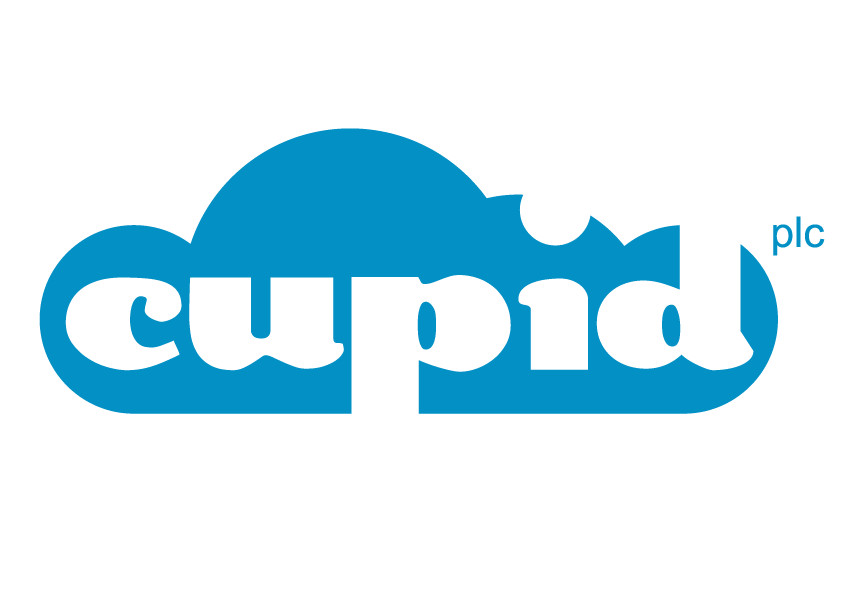
-
2005 June 01
Company Description
Cupid offers a network of online dating sites that enable members to find their perfect match.
Founded as EasyDate in 2005 by Bill Dobbie and Max Polyakov, the company grew organically, amassing 13 million registered users, of which 9 million were members, across thirty countries worldwide. This success, and the desire to fund further growth, prompted the company to become listed in the Alternative Investment Market - AIM - of the London Stock Exchange. Upon admission, the company had an approximate market capitalisation of £45 million. Cupid and its network of websites grew organically, hitting an impressive 300,000 new registered users monthly by early 2010. This growth translated itself to other platforms: in March 2011, Cupid reached 7 million users on the new Facebook platform. If this weren't enough, Cupid's mobile platforms have themselves achieved unprecedented levels of popularity, with BeNaughty's Android app achieving 1.25 million downloads in February 2011, becoming the top downloaded Android app in the USA. The company began using the capital it obtained from floating in the stock market to supplement and expand its growth, which had happened organically, through the acquisition of companies in other markets to strengthen its overall position. The first two of these acquisitions took place in September 2010, when the company bought PlanetSappho for £200,000 and Granamor for £25,000. This increased the company's portfolio to 15 sites in total. It was around this time when EasyDate gained the license for Flirt.com. This was for an initial period of six months, time during which the company entered into an events partnership with Metro newspaper and Cosmopolitan and Men's Health magazines to promote individual dating events in London. The company purchased [Flirt.com](http://www.flirt.com) outright less than four months later, for roughly £800,000. It was in December 2010 that the company decided to change its name to Cupid plc, following a threat of legal action from easyJet founder Si Stelios Haji-Ioannou, who wanted to avoid any confusion with his 'easy' branding. The company opted for Cupid plc as three months earlier it had acquired Cupid.com and associated domains for £4.4 million. Also in December 2010 the company announced a product in conjunction with WhatsOnStage.com. This was TheatreDate, a niche dating site for theatre lovers - the first of many similar collaborations. In February 2011, the company announced the acquisition of IndianDating.com, a North American website aimed at the Indian-American market in the US and Canada, for $200,000 US (around £125,000 at the time). The acquisition gave Cupid access to IndianDating's 600,000 users at the time, but more importantly, to a potential market of 2.6 million which had grown 53% over the previous ten years – the fastest of any Asian ethnic group in the USA. In mid-March 2011, Cupid achieved 7 million users on Facebook, having been nimble in taking advantage of the social network's platform to position itself strongly at the intersection between social networking and online dating – an advantageous spot to both reach a wider audience and provide a better service to its users. A few months after this, in May 2011, Cupid's monthly revenues were over £4 million. At this stage more than half of total revenue came from outside the UK for the first time in its history. It is at this time that the company announces the acquisition of Cupidon.com for £175,000 to improve its offering in the French market. As part of the same strategy, the company invested £2.5 million in a 75% stake in OnlineLiebe GmbH and WomenWeb GmbH, two German websites mainly appealing to niche dating markets in German-speaking countries. The process continued in August of that year, when the company acquired several Brazilian dating sites for £500,000, which gave them a foothold in a growing market with a population of 190 million. In October 2011 Cupid was named by Deloitte as the fastest growing technology company in Scotland, and 19th in the United Kingdom, having grown a very impressive 1,317% in five years.
-
Manufacturer:
Internet -
Formed:
June 1, 2005 -
Company Website:
-
Company E-mail:
-
Company Address:
5th Floor, 7 Castle StreetUnited KingdomEdinburgh -
We recognize our sponsors starting at $1 per entry.
Learn more at https://www.ithistory.org/benefits

